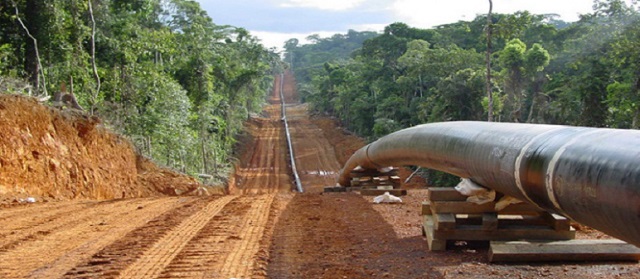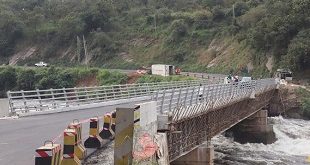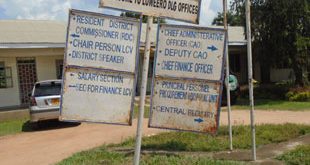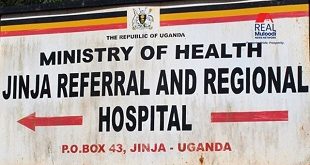
The Petroleum Authority of Uganda (PAU) insists that the oil and gas projects are being developed under close supervision of the authority and the companies are abiding by their internal, national, and international standards and policies.
Hoima, Uganda | THE INDEPENDENT | US-based NGO, Human Rights Watch has urged the prospective and current financiers of the fossil fuel projects in Uganda to disengage and stay away from them over environmental and human rights concerns. The 47-page document titled, “Our Trust is Broken”: Loss of Land and Livelihoods for Oil Development in Uganda, says the Tilenga oil fields in Western Uganda and the East African Crude Oil Pipeline (EACOP) have affected the livelihoods of 100,000 people.
TotalEnergies, the French oil giant is the lead investor in the projects, along with the Uganda and Tanzania governments and the Chinese oil company CNOOC, which is developing the Kingfisher fields south of Lake Albert.
“The project will displace more than 100,000 people, has caused food insecurity and household debt, caused children to leave school, and is likely to have devastating environmental effects,” says the report.
It calls on “other companies” not to support the pipeline and that the project should not be completed because it “will exacerbate the global climate crisis.” The government and the oil companies say the number of people displaced by the pipeline is about 13,000, with 3,568 being in Uganda and the others in Tanzania where almost 80 percent of the pipeline will be located.
According to the laws governing the oil and gas projects, all affected persons must be fully compensated before they leave the affected land, and the EACOP says it is abiding by this.
The report says that while almost all the people have been compensated, there were lengthy delays and this affected them.
“The development in the oilfield, which will ultimately displace over 100,000 people, is well underway. Although 90 percent of people who will lose land to the project have received compensation from TotalEnergies EP Uganda, the project has suffered from multiyear delays in paying compensation and inadequate compensation,” it says.
Felix Horne, a Senior Environment Researcher at HRW called the project a disaster for human rights and the environment. “EACOP has been a disaster for the tens of thousands who have lost the land that provided food for their families and an income to send their children to school, and who received too little compensation from TotalEnergies. EACOP is also a disaster for the planet and the project should not be completed,” he said.
The organization says the report is based primarily on over 90 interviews that it conducted in early 2023, including with 75 displaced families in five districts in Uganda. It says the delays and unclear communication have left the people in suspense over whether or not to use their land in the process.
“Consequently, the land acquisition project has caused severe financial hardships for thousands of Ugandan farmers, including heavy household debt, food insecurity, and an inability to pay school fees, causing many children to drop out of school.”
One of the consistent complaints by the project-affected persons PAPs is the inability to understand the terms and conditions in the documents they sign as they cannot comprehend the English language statements.
Independent surveys by Uganda Radio Network heard from the PAPs that while the EACOP and Tilenga manager’s intentions were clear and positive, it was the agent companies hired to handle compensation that were violating the rules.
“They come here promising us everything,” a resident said. “We believed them. Now we are landless, the compensation money is gone, what fields we have left are flooded, and dust fills the air,” the HRW report quotes a PAP. Atacama Consulting and Newplan Group managed the land acquisition process on behalf of TotalEnergies EP Uganda.
The report says that TotalEnergies has promised to respect various international standards including International Finance Corporation (IFC) Performance Standards, which require TotalEnergies and its subsidiaries to restore or enhance livelihoods to pre-disturbance levels.
“The pipeline has secured about 60 percent of its funding target. While the project still searches for the necessary financing, TotalEnergies and its subsidiaries should increase the amount of compensation and livelihood restoration efforts to be consistent with human rights standards,” the report urges.
In a June 15 letter to Human Rights Watch, TotalEnergies stated they “continue to pay close attention to respecting the rights of the communities concerned” and provided detailed responses underscoring their view that the compensation offered was in accordance with IFC standards. It says that Atacama Consulting rejected allegations that pressure was applied to people to sign and outlined why in their view the compensation provided met the requirement of “full replacement cost.”
The report also raises concerns about the pipeline’s “grave” effects on the environment.
“The pipeline route traverses sensitive ecosystems, including protected areas and internationally significant wetlands, posing threats to biodiversity and ecosystems that local communities depend on for their sustenance,” it says.
Because of the opposition to EACOP from civil society organizations and climate activists in Uganda and around the world, many financial institutions and insurance companies have made a public commitment to not support the pipeline. “The burning of fossil fuels is driving the climate crisis. Financial institutions considering funding EACOP should steer clear of this project and instead help Uganda embrace its significant clean energy potential,” Horne said.
This report comes three days after a French court ruled in favor of TotalEnergies and the projects in Uganda against efforts by Ugandan, French, and US NGOs. The court on Thursday declined to consider a case brought by a coalition of environmental groups and local authorities seeking to compel TotalEnergies to put off the developments.
The coalition led by Friends of the Earth of France and Uganda’s Africa Institute for Energy Governance, AFIEGO in 2020 took legal action against oil companies claiming that its stated commitments on emissions were insufficient to meet targets set by the legally binding Paris Agreement of 2015.
The petitioners had also sought a temporary pause on TotalEnergies’ new oil and gas projects pending a full trial on the substantive issues they were raising. The court declined to consider either the request for a suspension of the projects or the broader arguments, deeming them legally inadmissible.
According to the court documents, the coalition included a range of non-governmental organizations as well as 15 municipal authorities in France and the city of New York. The court dismissed the arguments, which cited a French law on the “duty of vigilance” towards violations of rights as the basis for their court action.
TotalEnergies said in a statement it took note of the court decision and said it had “an ambitions strategy to reach carbon neutrality by 2050, in line with society”. The Petroleum Authority of Uganda (PAU) insisted that the oil and gas projects are being developed under close supervision of the authority and the companies are abiding by their internal, national, and international standards and policies.
Ali Ssekatawa, the Head of Legal and Corporate Affairs wonders why there is no pressure on other countries including those in Europe that are opening up new oil and gas fields and building pipelines. According to EACOP, some 13,161 PAPs along the pipeline route will receive compensation in cash and in-kind directly from EACOP, in line with both National Legislation and the IFC Performance Standards.
“The vast majority of these PAPs (96%) have some portion of their land impacted and will receive compensation for the full replacement cost of their land, structures, crops, and trees. Some 4% of the PAPs also require their primary dwelling to be relocated, and they are offered replacement houses of a higher standard than their existing dwelling.”
In both countries, EACOP has established a field-based team of Community Relations Coordinators and Community Liaison Officers together with an accessible grievance mechanism. This, it says, allows to maintain a constant dialogue between EACOP and the PAPs together with the surrounding communities.
“PAPs will leave their affected land only after they have been paid their compensation and received their notice to vacate. This compensation process was started in 2021 and full land access is planned to be achieved this year.” On the environmental concerns, EACOP admits that there are some sensitive areas through which the pipeline will go, but not Lake Victoria or any site categorized by the International Unions for Conservation of Nature (IUCN) and that efforts have been made to prevent any harm and restore the areas affected to their original status.
“Some 8% of the pipeline length traverses designated areas covering an area of 3.5 km2; the pipeline will be buried and the surface vegetation restored so as to be almost invisible in operation. Furthermore, the majority of these are along the boundaries of such areas that have already been largely modified by farming and other human activity.”
*****
URN
 The Independent Uganda: You get the Truth we Pay the Price
The Independent Uganda: You get the Truth we Pay the Price



Well,
This are the kind of organisations that the government of Uganda 🇺🇬 shouldn’t tolerate in the country. They should be shut off and permanently removed from the country. For They have nothing developmental in Uganda 🇺🇬 as a thriving country.
You are calling yourselves “human rights watch” and yet you are sitting in a country with a negative attitude towards its developmental projects? Do you think us as a country or the government of Uganda 🇺🇬 in its right mind has never taken into consideration the environmental impact mitigation and control before embarking on such a multi billion dollar project?
Please STOP your jealousy and get of envey. You are very happy seeing Uganda 🇺🇬 begging from you the wicked Americans. May God bring all your devilish efforts to nothing in Jesus name.
FOR GOD AND MY COUNTRY-UGANDA 🇺🇬